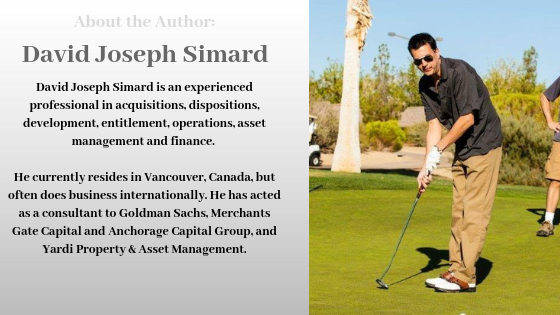
How Will COVID-19 Change the Face of Leadership
Every industry has endured the impact of the ongoing pandemic, and the lasting effects will continue to change the way we operate in personal and professional capacities. When it comes to the future of leadership, COVID-19 has disrupted traditional standards and altered how leaders are expected to behave and operate.
Personalization Over Standardization
Standardized practices have often been heralded as efficient. While efficiency is profitable and productive, the pandemic and a massive shift to remote work have demonstrated that cookie-cutter solutions are not the way to go. Instead, employees, leaders, and clients alike benefit from personalization and tailored business and service approaches. It will still be important to cultivate and uphold standard practices, protocols, and systems. Still, leaders should be ready to embrace flexibility, individuality, and innovation to achieve goals and fulfill responsibilities.
This shift toward a more personalized business attitude will require leaders to scrap outdated metrics, accept failure as an inevitable learning experience, and acknowledge the importance of boosting individual strengths and ideas over the collective.
Hyper-Global Networking
As a result of the new pandemic health guidelines, many businesses took a remote approach to protect their employees and clients. This shift opened new paths for employment, marketing, sales, and more. With some businesses adopting a fully-remote practice, opportunities to hire outside their physical location have increased exponentially; additionally, the digital landscape presents more opportunities to attract clients and customers from around the world, giving even local small businesses a shot in the global marketplace. For leaders, this development should encourage a global mindset that takes into account international ideas and practices. It will also prompt leaders to remember that the markets, including the job market, have become more competitive than ever before, giving them a reason to address their internal affairs and promote a higher degree of employee loyalty, engagement, and satisfaction.
Transparency & Open Communication
Leading with fear and secrecy have been standard practices in the past, but the time for those tactics is over. The pandemic has heightened concerns about health, job security, stability, and more. Leaders who fail to acknowledge and understand these anxieties may find that their workforce is often paralyzed or inefficient. Now, more than ever, leaders should strive to be empathetic, transparent, and open in communication efforts. A people-first approach to leadership is proving to be effective; by prioritizing employees’ value and well-being, leaders will find that the long-term benefits are substantial. Leaders should encourage collaboration, promote shared values rather than a broad mission statement, and give employees the courage and confidence to ask for advice and offer their opinions.


The Importance of Soft Skills for Leaders
Great leaders must possess various skills to successfully meet the requirements and fulfill the duties of their positions. However, beyond technical skills and industry knowledge, leaders must also be adept at navigating social interactions and interpersonal relations. Soft skills are essential for effective leaders. While it may be easy to dismiss soft skills as being challenging to teach and learn or largely intuitive, fostering such skills in yourself and others can make the difference between success and failure.
Communication
One of the broadest (and most important) soft skills for leaders is communication. Both verbal and written communication is essential for leaders to master; being able to convey thoughts effectively, ideas, feedback, and more is crucial for being a leader.
Active Listening
While telling others your thoughts in a clear and precise manner is necessary, listening to what others are saying is also essential. Actively listening to others and processing what they say can help foster trust, compassion, and loyalty, making this skill especially necessary for leaders who regularly engage with their teams. Through active listening, leaders can inspire their team members, boost morale, and encourage participation.
Delegation
Another soft skill that leaders should cultivate is that of delegation. For most of us, delegation does not come naturally. We tend to prefer to do things our ways, and leaders who have perfectionist habits are especially guilty of this tendency. However, effective leaders should be able to recognize when delegation is beneficial, and they should also learn how to delegate tasks in effective and efficient ways.
Teamwork
Though most workplaces have some hierarchical system in place, leaders should try to remember that they are, in fact, part of a team. As such, teamwork requires considerable soft skills to be effective and fair. Teamwork is more an example of why soft skills are essential rather than a skill in and of itself; to be a good team member, leaders must ensure that all members are on the same page and have the right resources to do their part.
For leaders, technical skills are undeniably important. However, leaders should also recognize that soft skills are also essential if they want to foster a strong, cohesive team with strong values and principles.


Leadership During Difficult Times
To become a great business leader, you must figure out how to not only lead people when things are going well but how to be an even better leader when things are going badly. No matter how much you prepare your business and your team, there is going to come to a point when things don’t go according to plan, and you must think on your feet. The true mark of a great leader is being able to lead when things are going poorly.
Transparency
Communication plays a huge role in leading people, especially in times of distress. While you don’t have to discuss every financial detail with every person on your staff, making sure that every person that needs to know something hears it from someone in leadership creates a calmer environment. Inevitably, news of what is going on is going to get out within the company. The best way to keep a crisis from turning into a full-blown disaster is to address it openly and honestly.
Ask for Feedback
If you’re going to let your team know what’s happening, encourage them to share their feedback. If they’re not comfortable doing so in a public forum, let them know that they can come to you privately, and their input will be kept confidential but is valued. The members of your team may have a good idea that will help you navigate these times. Even if they don’t, you need to hear and address their questions and concerns. Those team members are the key to your company surviving this period.
Vision Casting
You must help guide your team through the present; you have to do so with an eye towards the future. Without minimizing what’s going on in the moment, let your team know how the company is going to grow, evolve, and continue to be successful when a crisis passes. Sharing your vision with your employees is even more important when things are going badly, as they need to have something positive that they can look to.
Celebrate the Wins
No matter the size of the achievement, it should be celebrated. This is extremely important when your company is going through a difficult time. It’s easy to dwell on the things that are going wrong, which can result in low morale across the team and the business as a whole. Remember to break larger company goals down into more attainable SMART goals. Whenever you successfully achieve a smaller goal, celebrate the win! Not only does this help reinvigorate the team, but it also adds positivity to their work life and helps boost morale during tough times!
Hard times will come and go in the life cycle of a business, but having a great leadership team in place can help the company overcome the hurdles put in their way and help them continue to achieve great success.

About David Joseph Simard
David Joseph Simard is currently a private real estate development and construction consultant based out of Vancouver, British Columbia, one of Canada’s most desirable housing and commercial real estate markets. While paving an unconventional path to his successful career in real estate, Simard has found ways to incorporate his varied experience and education throughout each new project. In addition to the success he’s seen with his own consulting business, David Joseph Simard has also found ways to use his expertise to give back to various public and non-profit organizations. Some of these initiatives include an appointment as the founding President of the Canada Nevada Business Counsel and his service to the Board of UNLV’s School of Business.
Before settling down in Vancouver, David Joseph Simard first found his enthusiasm for real estate and new construction development at the University of Windsor, in Windsor Ontario. Here, Simard studied both industrial psychology and history/international relations. This trend in multi-disciplined education would continue for Simard, as his path then took him down to East Lansing, Michigan. At Michigan State University, he would go on to receive two Bachelor of Arts degrees in both industrial psychology and history/international relations. Forever the proud Spartan, Simard moved ahead with his pursuit of acquiring a Juris Doctorate from MSU, recognized as the highest level of education available in the United States’ legal sector.

It was by total happenstance that David Joseph Simard found his first part-time job in real estate while still in school. This wouldn’t be considered the most relevant job for an international relations major. But, Simard found a fast affinity for his work as a real estate broker and later moved on to the next phase of his career, transitioning to real estate development. Simard didn’t realize at the time that he was beginning a career in the industry that would span nearly 30 years. His path eventually led to the international real estate industry and consulting Fortune 500 companies, keeping their multi-million dollar projects on time and under budget.
David Joseph Simard‘s current role finds him continuing his consulting services for global companies, some of which include General Dynamics, Ericsson, and AT&T. Simard’s varied expertise lends his consulting services in legal, financial, and business operations, while providing turnkey real estate project management solutions. Seeing a new construction project begin to take shape is what has kept Simard on this path. The capability to see a project to completion through all areas of a commercial and residential real estate development has enabled Simard to make his mark throughout the industry. When working with Simard, his clients have echoed the same positive experiences of having worked with a unique talent that can guide them through the full life cycle of a project and across all phases.
In addition to his other public service efforts, David Joseph Simard has also served the Boards of the Lied Institute for Real Estate, NDA, and NAIOP. When spending time outside of his professional path, Simard is a wine enthusiast that you may likely find attending a wine tasting at one of Vancouver’s fine vineyards. He also enjoys more strenuous outdoor activities like snowboarding, skiing, and hiking.
